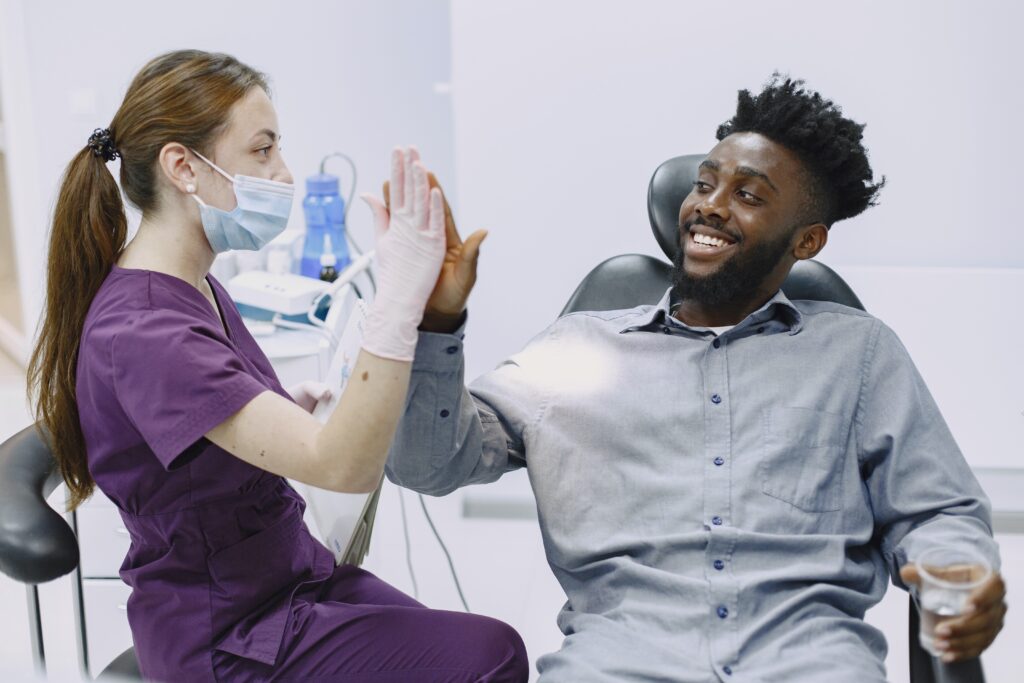Are you ready for a journey towards a brighter, addiction-free future? Welcome to Better Days Treatment, where we’re not just offering hope; we’re providing a lifeline to recovery through our IOP Intensive Outpatient Program. Get ready to take that first step towards a better life with us.
Comprehending the IOP Intensive Outpatient Program
The Intensive Outpatient Program (IOP) is a flexible treatment facility option for individuals with substance abuse issues. It allows patients to live at home while receiving care, making it ideal for those with work or family commitments. This structured program includes scheduled therapy sessions, providing a higher level of care than outpatient services.
The IOP offers comprehensive support for the individual and their loved ones by incorporating family therapy and medication management. With the Substance Abuse and Mental Health Services Administration (SAMHSA) recognizing IOP as an effective treatment facility, it has become a popular choice for those seeking recovery.
Defining IOP in the Context of Substance Abuse Treatment
Intensive outpatient programs (IOP) are a form of treatment for substance use disorders and other dependencies. These programs are designed for individuals who do not require 24-hour supervision but still need comprehensive care.
IOPs offer various therapies, such as individual and group therapy, to address the underlying causes of addiction and dependencies. The focus is on helping individuals develop coping skills and prevent relapse. By providing a range of treatment options in a structured environment, IOPs aim to support individuals in their recovery journey.
Comparing IOP and Residential Treatment Programs
IOP and residential treatment programs differ in the level of care provided. While IOP offers a lower level of care, residential treatment programs provide 24-hour supervision and the highest level of care. An IOP program allows individuals to continue living at home during treatment, making it a flexible option.
However, residential treatment is recommended for severe addictions when the highest level of care is needed. Both programs offer comprehensive addiction treatment services. It’s important to consider one’s needs and addiction severity when choosing between these treatment options.
Key Differences between Inpatient and Outpatient Facilities
Inpatient facilities offer round-the-clock care and supervision, providing intensive and structured treatment, including detoxification services. On the other hand, outpatient facilities provide more flexibility in terms of treatment hours, allowing individuals to maintain work and family commitments. The choice between inpatient and outpatient depends on the individual’s needs and level of care required.

Inpatient programs are ideal for those who require 24-hour supervision, while outpatient treatment is suitable for individuals who need a lower level of care and a safe home environment. Both options offer comprehensive addiction treatment services.
Unfolding the Stages of IOP for Addiction Treatment
IOP for addiction treatment typically involves three stages: assessment, treatment, and aftercare. During the assessment stage, an individual’s needs are evaluated to develop a personalized treatment plan. The treatment stage includes therapy sessions, support groups, and other interventions promoting abstinence. The aftercare stage focuses on maintaining sobriety and preventing relapse. The duration of each stage may vary depending on the individual’s progress and treatment goals. These stages ensure a comprehensive approach to addiction treatment, addressing the unique needs of each individual.
Typical Duration of an Intensive Outpatient Treatment
The duration of an Intensive Outpatient Program (IOP) can vary depending on individual needs and progress. On average, these programs last between six and 12 weeks, with treatment sessions typically held multiple times a week. Each session lasts around three hours, allowing for comprehensive therapy and support.
It’s important to note that the duration of IOP can be customized to meet the specific needs of each individual, ensuring that they receive the appropriate level of care. Participants are also encouraged to engage in a 12-step program to further support their recovery journey.
What is PHP and How it works
Partial Hospitalization Program (PHP) is a key component of our IOP at Better Days Treatment. It provides a structured and intensive level of care, bridging the gap between inpatient treatment and outpatient services. PHP is an excellent option for those who require a higher level of support than traditional outpatient treatment can provide.
PHP involves daily, structured treatment sessions, typically lasting several hours a day. These sessions encompass various therapeutic activities, counseling, and medical supervision to ensure your safety and progress.
Our experienced medical and clinical team will create a personalized PHP plan tailored to your unique needs.
The Role of Psychotherapy in IOP
Psychotherapy is an integral part of our IOP program at Better Days Treatment. It focuses on addressing addiction’s psychological and emotional aspects, helping you develop coping strategies and uncover the root causes of your substance abuse.
Types of Psychotherapy Offered
We offer a variety of evidence-based psychotherapeutic approaches, including:
Key Features of Outpatient Rehabilitation:
- Cognitive-Behavioral Therapy (CBT): CBT helps you identify and change negative thought patterns and behaviors associated with addiction.
- Individual Counseling: One-on-one sessions with a licensed therapist allow personalized support and exploration of your unique challenges.
- Group Therapy: Connecting with peers with similar experiences can provide a sense of community and understanding.
- Family Therapy: Involving loved ones in therapy can promote healthier family dynamics and support systems.
Exploring Complementary Therapies in IOP
Complementary therapies, such as art therapy, can significantly enhance individuals’ healing process in an Intensive Outpatient Program (IOP). Through art therapy, individuals are able to express their emotions and experiences in a non-verbal manner. In addition to art therapy, music therapy is also utilized in IOP to promote relaxation and emotional expression.
Furthermore, mindfulness practices are integrated into the program to help individuals develop self-awareness and reduce stress. These complementary therapies are valuable additions to the traditional talk therapy approaches commonly used in IOP.
What to Expect in Rehab
During rehab, you’ll have access to:
- Life Skills Training: We provide education and training to help you regain independence and successfully navigate life after addiction.
- Peer Support: Engage with others in recovery to build a strong support network and share experiences.
- Aftercare Planning: We work with you to create a personalized aftercare plan to maintain your sobriety once you complete the program.
The Function of Support Groups
Support groups within the context of an Intensive Outpatient Program (IOP) offer a sense of community and understanding among individuals and their family members undergoing treatment.By participating in group therapy sessions, individuals and their family members are able to share their experiences and learn from others who are facing similar challenges. These support groups play a crucial role in promoting accountability and encouragement for maintaining sobriety for both the individuals and their family members.

Additionally, peer support helps individuals and their family members develop new coping skills and strategies for a successful recovery. The group dynamic fosters a sense of belonging and diminishes feelings of isolation for individuals and their family members.
How to Choose the Best Option for IOP Treatment?
Consider your level of care needed and assess the availability of outpatient services in your area. Evaluate how IOP fits your work commitments and consult a mental health professional for guidance. Research success rates and outcomes to make an informed decision. You can find centers anywhere you live, rather that’s an IOP program in San Diego or IOP program NYC.
Insurance
To determine if your insurance covers IOP, check with your provider. Review the coverage details, including deductibles and copayments. Inquire about any limitations or session restrictions. Understand the process for pre-authorization or pre-certification. Seek clarification on required documentation for insurance coverage.
How Does IOP Contribute to Mental Health Improvement?
IOP plays a crucial role in improving mental health. It offers comprehensive therapy and counseling by addressing substance abuse and mental health issues. The structured nature of IOP promotes consistent engagement, equipping individuals with coping skills and providing ongoing support for long-term improvement.
Conclusion
If you or someone you know is struggling with substance abuse and is looking for a flexible and effective treatment option, the Intensive Outpatient Program (IOP) may be the right choice.
Our program is designed to meet your unique needs while allowing you to maintain your daily life. If you have any questions or would like to learn more about IOP, please don’t hesitate to contact us.
At Better Days Treatment, our dedicated team supports you on your journey to lasting recovery.

